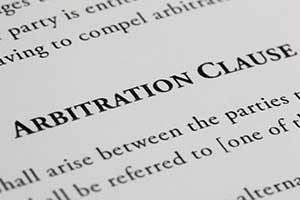Last week, Lindley Law discussed the elements of tortious interference with expected inheritance, which can occur when an individual maliciously interferes with the making or revocation of a will to the detriment of the plaintiff. This blog will address a similar but distinct tort: tortious interference with contract. The Elements In North Carolina, to prove tortious interference with expected inheritance, a plaintiff must allege: A valid contract existed between the plaintiff and a third party, which conferred contractual rights upon the plaintiff against the third party; The defendant had actual knowledge of the contract between the plaintiff and the third party; The defendant intentionally induced the third…
-
-
TORTIOUS INTERFERENCE WITH EXPECTED INHERITANCE
North Carolina recognizes a cause of action for tortious inference with expected inheritance. This cause of action can be confused with tortious interference with prospective economic advantage, which occurs in the context of a contract or potential contract. Conversely, tortious interference with expected inheritance occurs in the context of a will or estate, rather than in the context of a contract or potential contract. Further, unlike a cause of action for undue influence, which permits recovery by the testator (the person executing the will), tortious interference with expected inheritance permits recovery by the individual expecting to benefit from the testator’s will. The Elements To prove tortious interference with…
-
Jilted North Carolina Spouse wins $8.8 Million over Wife’s Affair
Last week a Superior Court judge in Durham, North Carolina awarded Keith King $8.8 million dollars in damages against Francisco Huizar III, a man who had an affair with King’s wife. This verdict is the result of North Carolina’s alienation of affection and criminal conversion laws. A remnant of English common law, causes of action for alienation of affection and criminal conversion allow a spouse to recover damages when a third party interferes with the relationship and causes deprivation of affection, frequently seen in cases of adultery. At trial Keith King showed that he and his wife, Danielle, were happily married from 2010 until 2015. In 2015, Danielle…
-
Revenge on the Porch Pirates: Legal or Not?
‘Tis the season for porch pirates! The seas are perfect when you consider online shopping is outperforming in-store shopping for the first time ever and this is the most robust holiday spending season since 2014 at $682 billion. This means online retailers, like Amazon, and shipping companies are working at a (yellow?) fever pitch in order to get consumer goods to homes and offices. But unless you’ve arranged for your packages to be delivered at a time you can be are at home, those packages may be sitting on your front porch all day while you are at work and may be raided by porch pirates. For the uninitiated, “porch…
-
North Carolina Business Court Reaffirms Breadth of Arbitrators’ Authority in Recent Decision
A recent decision by the North Carolina Business Court (NCBC) re-affirmed long standing precedent that an arbitration award is customarily final and binding, even if it includes an error of fact or law.[1] In the most recent case, Killian/Simonini, LLC argued the arbitrator exceeded his authority by impermissibly including consequential and punitive damages in his award, which were not provided for in the arbitration clause of their operating agreement. Killian/Simonini further argued the North Carolina Limited Liability Act controls and limits the remedy for failure to make capital contribution payments to a LLC to the actual amount of the payments.[2] Therefore, they contended the…



